Frequently Asked Questions
Where are you located?
I am located in Oregon and for now can only provide therapy to clients who reside in Oregon due to licensing laws. I may eventually get licensed in more states which I will keep updated on this website.
Do you take insurance?
I am currently able to take clients who are insured with Oregon Health Plan (OHP) PacificSource and PacificSource Commercial as well as OHP InterCommunity Health Network (Corvallis area) and Samaritan. I will also accept Love Vouchers
What’s the difference between sex therapy and ‘normal’ therapy?
Great question! Sex therapy overlaps a lot with general mental health therapy. The biggest difference is the subject matter and specialization. It’s talk therapy (and other ethic modalities) that is in a comfortable, safe, and non-judgmental space to discuss matters of sex, gender, etc. Sex therapy is NEVER any relationship that crosses lines into dual relationships or sex, dating, etc. That is across the board for clinical providers since that is wholly unethical and damaging to client welfare.
What are your views on “Sex/Porn Addiction”?
I follow the AASECT position on their website:
https://www.aasect.org/position-sex-addiction
Who do you work with?
I work with adults (18+) seeking mental health, sexual health, and/or addiction/recovery treatment. I tend to work well with people who are curious about examining how to break from the ‘normative’ socialization we’ve been exposed to through many different systems.
Although sexual health is a specialty of mine, I am not certified to work with people who have been mandated through the courts and have sexually offended since this is a very specific certificate (SOTP) that the courts require.
How can I tell if a therapist is a good fit for me?
It can help to know what type of therapist you prefer to work with (directive vs non-directive) and certain specialties that you know you want to work on help as well. Some clients really appreciate certain modalities (For example: DBT, CBT, Interpersonal Neurobiology, EMDR, Exposure Therapy, etc) within therapy.
What theories and modalities do YOU use?
I was trained through a social justice framework. This includes for me a systems approach looking at intersectionality and how we were placed in these systems and how that’s affected our coping. I visualize it as concentric circles that get larger with self being in the center; working out from there. My big goal for therapy is having the client feel safe enough in the therapeutic alliance and open to work on their goals. This means having a foundation of healthy coping skills when dysregulation does happen that can carry over into many areas of everyday life.
I consider myself eclectic (I know! I know! Everyone says that) and participate most commonly in the theories of existential, feminist, interpersonal neurobiology (e.g. Dan Siegel), decolonizing, person-centered humanistic, gestalt, and attachment theory all from a nuanced perspective. I use specific intervention if it fits for the person and situation. Theories that I often use include Dialectical Behavior Therapy (DBT), Acceptance and Commitment Therapy (ACT), and some Cognitive Behavioral Therapy (CBT). I am NOT trained in EMDR or specific exposure therapies and if that is indicated I can refer to professionals who are when appropriate to do so.
What’s this free consultation?
The free consultation is done by telephone or telehealth for you to ask any questions and see if we would be a good fit. If there’s a specialty or certain modality you are looking for that I don’t have I can refer you to someone who does. Basically, it’s a short window to gauge if you want to work with me and if I can provide the appropriate services to you.
Does therapy actually help?
Therapy research has consistently shown that it can help up to 75% of the time1. The biggest determinant of a positive outcome in therapy is if there is a trusting therapeutic alliance2 which takes time to build like with any relationship. So it’s pretty much ‘do you trust your therapist and how they approach the process’? Every client is different and there isn’t a one-size-fits-all theory or intervention. Therapy is a collaborative and ongoing process.
How long does it take to get into therapy & what times are available?
Right now there is a waitlist and wait times due to being full. Although, I do have limited availability, this will vastly open up in the summer with more afternoon availability for a few months (and possibly permanently). The times currently available for session are 6pm, 7pm, or 8pm Monday-Wednesday. I offer what most people would consider “after hours” times due to not only my own schedule but also wanting to offer convenient times for after work/school, etc.
Do you do in-person sessions?
Not yet, I will eventually be looking for a brick and mortar space in the Willamette Valley area (Corvallis, Salem, Eugene, etc) but will always offer telehealth as well. Rural communities are more accessible by doing so.
Can you prescribe medication?
Nope, I am not a trained medical professional and do not have the ability to prescribe meds. I will point you in the direction (refer) to one if it is indicated though.
How long are sessions?
Sessions are 53 mins, so almost an hour. Group sessions can vary and range from 60 minutes up to 90 minutes.
How do I schedule with you?
There is a ‘Make An Appointment‘ link up above that leads you to an email. I also schedule through SimplePractice so once you become a client you should have access to the scheduler.
I am not in the role of a crisis counselor, so if immediate assistance is needed please dial 988 for mental health emergencies and 911 for any other emergencies.

